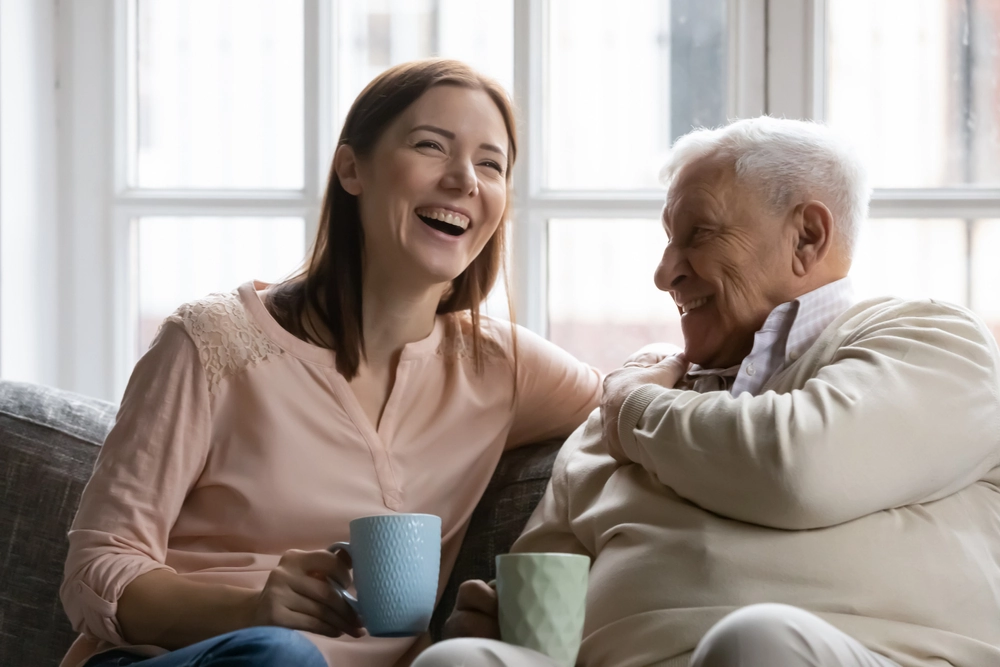
One of the biggest disruptions that COVID-19 presents is its effect on employees' ability to work - both because of quarantine measures and, of course, the effects of the virus itself on infected workers.
Employers understandably have a number of questions about self-isolation, sick leave and sick pay and what to tell their employees during this period. Whilst the situation is evolving, here is what we know as of the date this article is published.
If you have more questions about any of these issues, it might be worth signing up to our free webinar on Tuesday, when Karen Bates and I will be talking through the latest guidance for employers.
Self-isolation
Self-isolation requires the individual to remain at home for a period of time to limit their contact with others.
As of 16 March 2020, people are now advised to stay at home if they have either:
- a high temperature (i.e. 37.8C+) – feeling hot to touch on your chest or back.
- a new, continuous cough – i.e. you've started coughing repeatedly.
If an individual has symptoms, then guidance is that they should stay at home for 7 days, but that if they live with other people, they should stay at home for 14 days from the day the first person presents with symptoms.
Can employees work while self-isolating because of COVID-19?
In some cases, employees may be able to work from home while in self-isolation. However, in many cases, if an employee is unable to attend their place of work, they will be unable to work, as in the case of those working in frontline services in the care sector, healthcare, cleaning, hospitality, catering and the emergency services.
If employees show symptoms of COVID-19, what should they do?
If the symptomatic individual lives with someone who is 70 or over, has a long-term condition, is pregnant or has a weakened immune system, then they should try to find somewhere else for them to stay for 14 days. If they have to stay at home together, then they should try to keep away from each other as much as possible.
For these initial periods of self-isolation, the advice is that symptomatic individuals should not go to a GP surgery, pharmacy or hospital, that they do not need to contact 111 to tell them they're staying at home, and that testing for coronavirus is not needed if the person is staying at home.
Individuals should, however, use the NHS 111 online Coronavirus service if:
- they feel they cannot cope with their symptoms at home.
- their condition gets worse.
- their symptoms do not get better after 7 days.
What about everyone else?
The following significant measures have also been announced:
- Everyone should stop non-essential contact with others. This is particularly important for people over 70, those with underlying health conditions and pregnant women
- People should work from home where they can
- People should avoid places like pubs, clubs and theatres. This applies especially to those in London which is "a few weeks ahead" of the rest of the UK
- People should stop all unnecessary travel
The Government has other powers which it could use to protect people from infection, including school closures.
Pay during self-isolation
Statutory Sick Pay (SSP) entitlement is being extended on a temporary basis to cover individuals who are not ill but are unable to work because they have been advised to self-isolate in line with Government guidance. Such SSP entitlement will also be payable from day 1 (whereas it would normally be payable from day 4 of an absence) for affected individuals.
Employers should keep a careful record of all such absences but have been urged to use their discretion about what evidence, if any, they ask for. If employees do need to provide evidence to their employer that they need to stay at home due to coronavirus, they will be able to get it from NHS 111 Online instead of having to get a fit note from their doctor – this is currently under development and will be made available soon.
To help minimise the impact of this on small and medium-sized businesses (i.e. who had fewer than 250 employees as of 28 February 2020) eligible SSP costs will be refunded to the tune of up to two weeks per eligible employee who has been off work because of COVID-19.
Enhanced sick pay during the COVID-19 outbreak
As to enhanced company sick pay, the position is a little 'greyer' and may depend heavily on the wording of the company sick pay policy in question. If talking about an individual who has symptoms themselves, then it seems likely that they would qualify as being 'sick' under such a scheme and so have an entitlement. However, if they are self-isolating because they have been to an infected area or because they've been in close contact with an infected person, then the position may be different. ACAS issued guidance on the 19 February 2020 recommends that it is “good practice” for employers to treat self-isolation as sick leave (if nothing else than to disincentivise a potentially infectious employee from coming into work and infecting their colleagues), however employers may well have to decide how they wish to interpret this.
Should you review your Attendance Management Policy because of COVID-19?
An Attendance Management Policy entitles an employer to take management action if an employee has sustained periods of absence. Employers with an Attendance Management Policy should consider whether a period of absence caused by a COVID-19 infection or self-isolation in accordance with PHE guidance will have a bearing on whether the policy thresholds are met. This is because an Attendance Management Policy may discourage employees who have developed or are at risk of developing COVID-19 from staying away from work.
Modifications to an Attendance Management Policy will almost certainly be required in the case of an employee who is at a higher risk of contracting severe COVID-19 under the WHO guidance.
Can employees take time off for school closures because of COVID-19?
On 12 March 2020 the Irish Prime Minister Leo Varadkar announced schools, colleges and other public facilities in the Republic of Ireland are closed between 18:00 on 12 March until the 29 March 2020. Various other countries are also instituting nationwide school closes including Italy, Denmark, Japan, Kazakhstan and the Republic of Ireland.
There is an expectation that the UK government might very well reach a point soon where they impose similar restrictions to UK schools and colleges (or perhaps bring forward school Easter holidays or similar) which would of course have an enormous effect on businesses (especially if parents are unwilling to risk elderly grandparents assisting with childcare responsibilities for fear of increasing those grandparents' risk of infection).
If school and college closures arise, employees are able to take emergency time off for dependants under s. 57A Employment Rights Act 1996. An employee must inform their employer of their absence as soon as reasonably practicable and to provide an estimation of how long they expect to be absent.
There is no statutory right to be paid during emergency dependant leave, but an employee’s employment contract or employee handbook may provide pay.
Managing absence can be tricky at the best of times, but COVID-19 presents a whole host of novel problems for HR teams. If you would value some support with these issues in your business, our Employment Team can assist.













